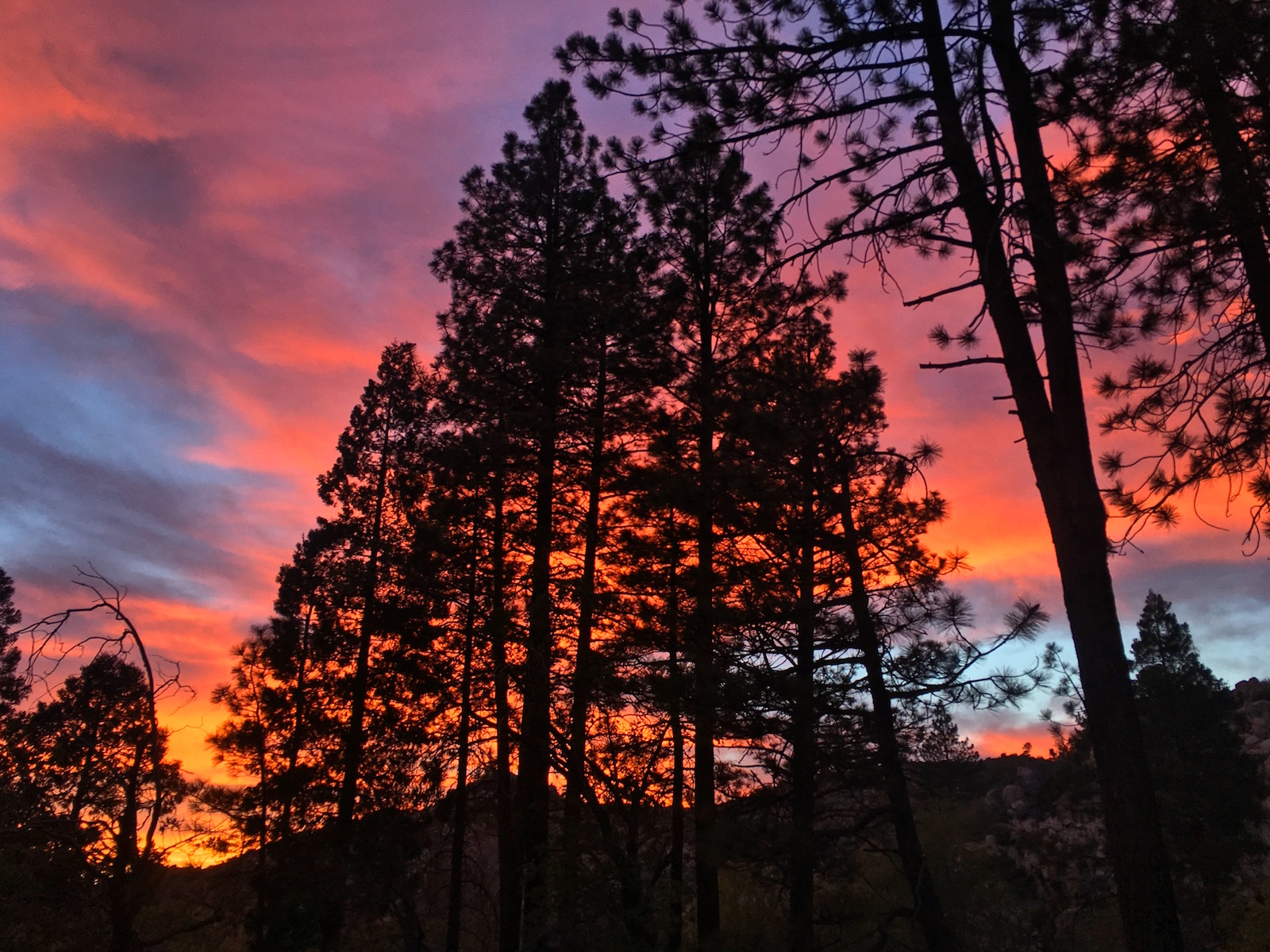I’ve told a lot of stories about why I stopped hiking the Pacific Crest Trail at the 454 mile mark last summer, though I intended to hike the whole thing, all 2,650 miles from Mexico to Canada. They’re all versions of the truth. I missed my girlfriend, it’s true. I hurt my knee, yes, also true. I missed my community and my friends and my life in Portland, yes yes yes, true true true. Oh, and I was scared of the Sierra Nevada mountain range and the historic snowfall of 2017, not at all convinced I could do that portion of the trail alone in a safe way. Yes, also true. The Pacific Crest Trail in 2017 was no joke, and those who hiked continuous footpaths (or not-continuous footpaths!) through one of the most popular long distance trails in the United States of America last year deserve praise and recognition.
Most days, I am still sad I was not one of them.

But I decided to stop hiking just shy of 500 miles in, and while all of the very truthful realities I just listed played a part in my decision to quit, the real truth is harder to admit. I’m scared to say it out loud, embarrassed I let it get to me, unsure I want to make myself a spokeswoman for this particular issue. And yet, every time I do speak this truth, other hikers come forward and say, “I felt that way too.” They sigh in relief that someone is naming this problem. And so I’m finally writing this essay, the one I’ve been trying to articulate for almost eight months, the one I have been putting off for just as long. I want other hikers to see these words when they research the PCT and try to decide if it’s the right choice for them to hike this trail. I want to say this clearly, because it has been so hard to admit and has made me feel ashamed and sad about things that are not my fault.
I stopped hiking the Pacific Crest Trail in 2017 because of toxic masculinity and bro culture in the hiking community. It exists, it’s shitty, and it fucked me up.

The first time I heard about the Pacific Crest Trail was when I read Cheryl Strayed’s Wild. At the time I was living in Brooklyn, and I wouldn’t have called myself outdoorsy, let alone a hiker. I love Strayed’s work and am moved by almost everything she’s ever written, but at the time I didn’t feel called to hike the PCT myself. Rather, I took her advice in Tiny Beautiful Things as a hint to get out of New York City, break up with my girlfriend, and prove to myself I could exist as a human untethered to a computer screen. So in a way, it was Cheryl Strayed who set me on the path of eventually hiking the PCT… it just wasn’t a terribly straightforward line. Bigger influences would appear in my life when I left Brooklyn, and eventually it would be a different woman and a different memoir that set me on my first steps on trail. But I don’t owe Strayed nothing, and the irony of the way she and her story have been treated by the long distance hiking community is not lost on me as I think about my own experiences on trail.
People in the long distance hiking community love to talk shit about Cheryl Strayed.
If you mention Strayed to a specific kind of hiker on the PCT, he’ll be sure to let you know that she didn’t even hike the whole trail, what a liar, and she’s had sex, so you know she’s a slut, and it’s totally her fault that the PCT is overcrowded now, it’s so annoying that all these dumb girls who have no idea what they’re doing saw Wild one time and thought they could do a long trail. You’ll find hikers talking this way on message boards and Facebook groups, which I expected because the internet can be a trash heap, but you’ll find them talking this way on the physical trail too, which I guess I did not.
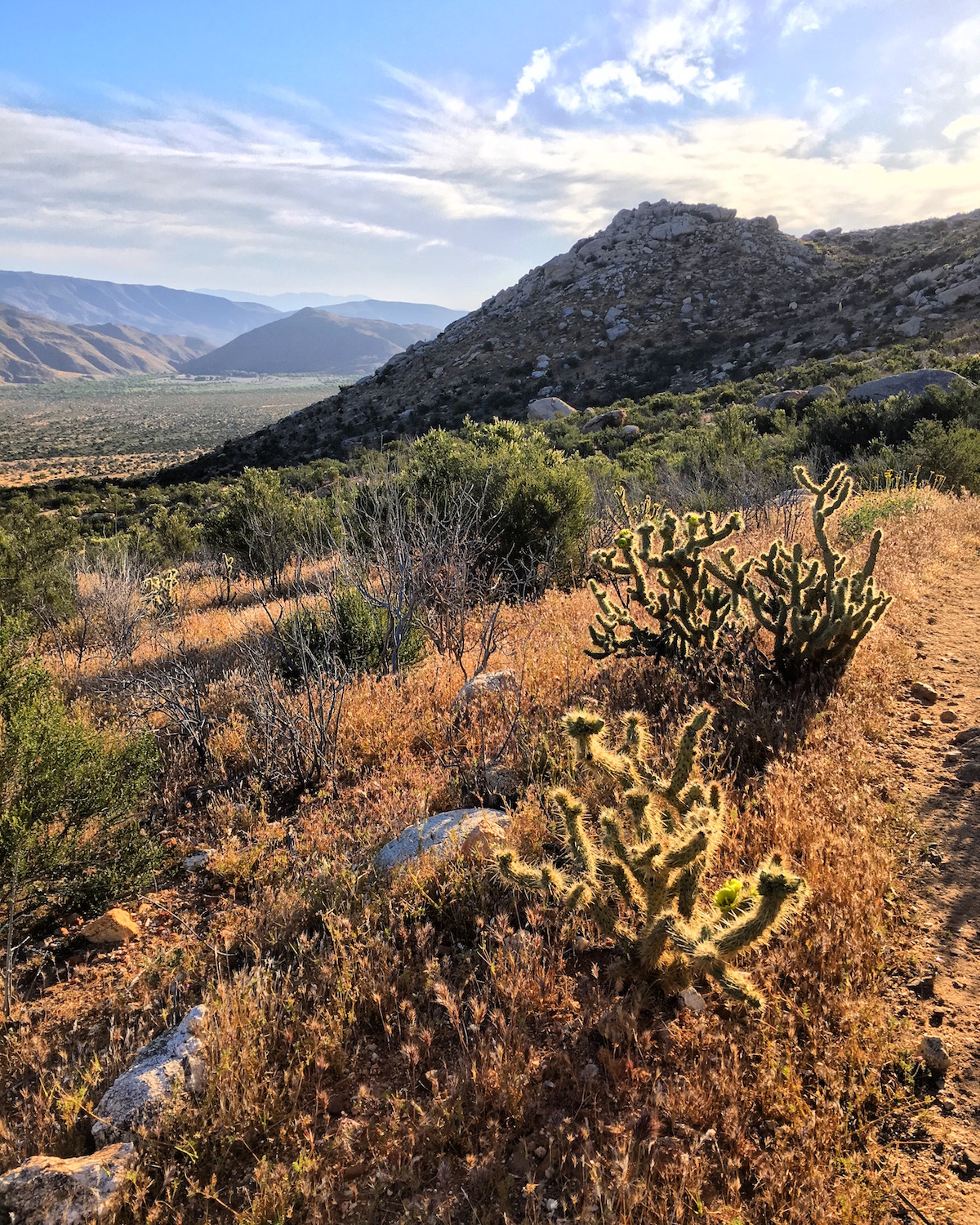
If you’re a woman, a queer person, a person of color, a fat person, or anyone who falls outside a very narrow set of parameters, you may find yourself discouraged by the online hiking community and the casual sexism, racism, fatphobia, transphobia, and all around shittiness that runs rampant there. I suppose like any community that isn’t explicitly focused on lifting marginalized folks up (and even those communities have flaws, obviously), one shouldn’t dare to have high expectations of the long distance hiking community, especially not on forums on the internet where anonymity and boredom can draw out the ugliness of humanity.
But I actually did have high expectations for the long distance hiking community, at the very least off the internet and on trail, because everyone I met who was involved in long distance hiking told me that the community is incredible. I spoke with multiple women who waxed poetic about their “trail families” and focused only on the positive aspects of trail life. I attended official community events (yes, the long distance hiking world has official events!) where experts gave talks about how to be respectful visitors in trail towns, how to eat healthier foods on trail, what to do in case of an emergency – essentially, presentations about how to be better hikers and better people. The illusion that the hiking community is a safe space for everyone is strong, in part because as far as I can tell, most people involved either don’t realize that it isn’t, or they don’t feel comfortable admitting otherwise. The same women who initially had assured me I would fall in love with my “trail fam” on the PCT messaged me privately when I got off the trail – they felt bad that they hadn’t warned me about the realities of being a woman on the trail. And in retrospect, though the official events worked so hard to focus on the positives of the community and help make us better, the words “misogyny,” “sexual harassment,” and “racism” never once made an appearance on the agendas.
And therein lies the problem, the one I’m not sure how to tackle because it feels huge and inevitable and I feel dumb and naive for not anticipating it, or not anticipating how disheartening and ultimately soul crushing it could be: the long distance hiking community is not a particularly welcoming and special safe space for anyone who is not white, male, able-bodied, straight, cis, and competitive. But those dudes will tell you that it is, and they don’t want to talk about why it might not feel that way for everyone.
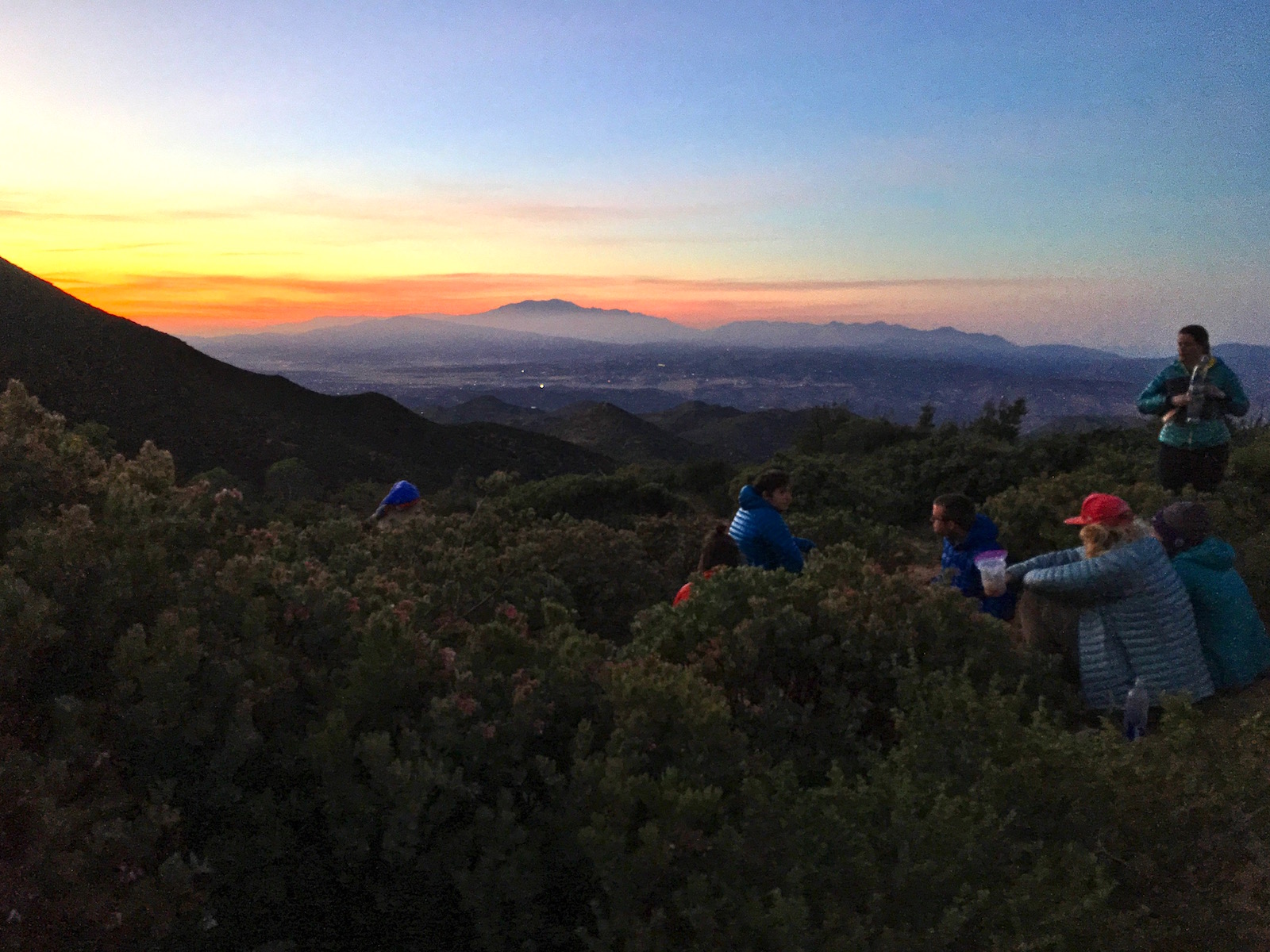
Before I continue, a caveat, partially because I feel anxious about backlash when I say things like this and partially because it is true and I don’t want to be misunderstood: Saying that the long distance hiking community (and the outdoor recreational community in general, if I’m being honest!) has a lot of work to do does not mean that every individual in the community is terrible. Saying that I don’t necessarily think the long distance hiking community is a safe space for folks from marginalized communities does not mean that many women, many queer and trans people, many people of color, and many fat humans haven’t had fantastic times on trail and interacting with other hikers. Wanting a community to do and be better does not mean every aspect of it sucks.
But I still stand behind my original point: the long distance hiking community has a toxic masculinity problem, and the bro culture that runs rampant on the trail is hurting all of us.

I told you that a woman and her memoir set me on my trajectory to hike the Pacific Crest Trail. That woman is Carrot Quinn, and her memoir, Thru-Hiking Will Break Your Heart, ripped mine wide open. I met Carrot by chance, after I left New York, took a road trip across the United States, accidentally ended up in Oregon, and decided to stay. I was living on a lesbian land project and trying to rebuild my life after a terrible breakup and community fallout. I’d just left Brooklyn eight months earlier. No one I knew on the East Coast hiked long distances. I didn’t really know that you could.
It was October 2014 and Carrot was fresh off her second Pacific Crest Trail thru-hike and the Lowest to Highest Route, a short but difficult route that requires maps and navigation skills and scrambling and food caches (all things one does not really need to do on the PCT). We met at a queer gathering and she told me about both hikes. I was wearing a snapback that had the words TAKE A HIKE emblazoned on the front and she complimented my hat. I was embarrassed when I found out she was a “real hiker” but she never made me feel bad about it. Over time, she convinced me I could be a real hiker, too.
I remember marveling over Carrot’s grit, bravery, and sense of adventure on that autumn evening in 2014, thinking to myself, oh my god, this woman is incredible. And then, quickly, before I had the chance to squash the idea with self-doubt or fear, my brain jumped ahead and whispered a tiny thought into my subconscious: I want to prove to myself that I can be that incredible.
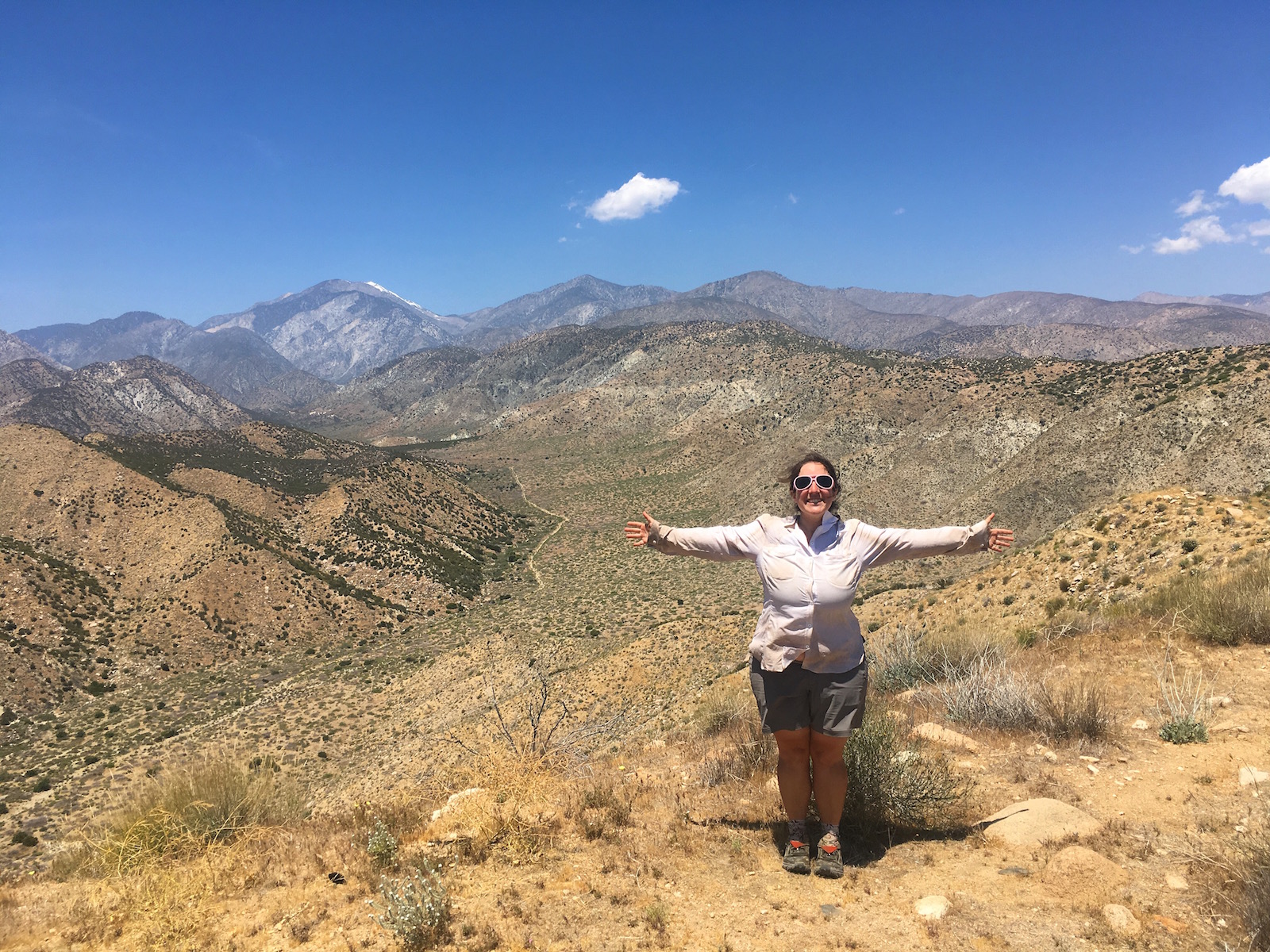
I drove home that night, found Carrot on Facebook, sent her a friend request, found her blog, proceeded to read almost the entire thing in one evening (she blogs prolifically, doing daily posts for every day she has ever been on trail, and her words are sharp and vibrant and really make you feel like you’re right there with her), sent her a message telling her I thought she was amazing and wanted to be her friend, and the rest is fucking history. I was on track to hike the Pacific Crest Trail in a couple of years.
I’m kidding, sort of, about how quickly I made the decision, but not really. When we see representations of ourselves in the world, whether the experiences be small or large, incredible or mundane, fun or difficult or both, it makes us feel as though we can do those things, too.
Knowing that Carrot had hiked the PCT made me feel like I could do it, too. Why not?
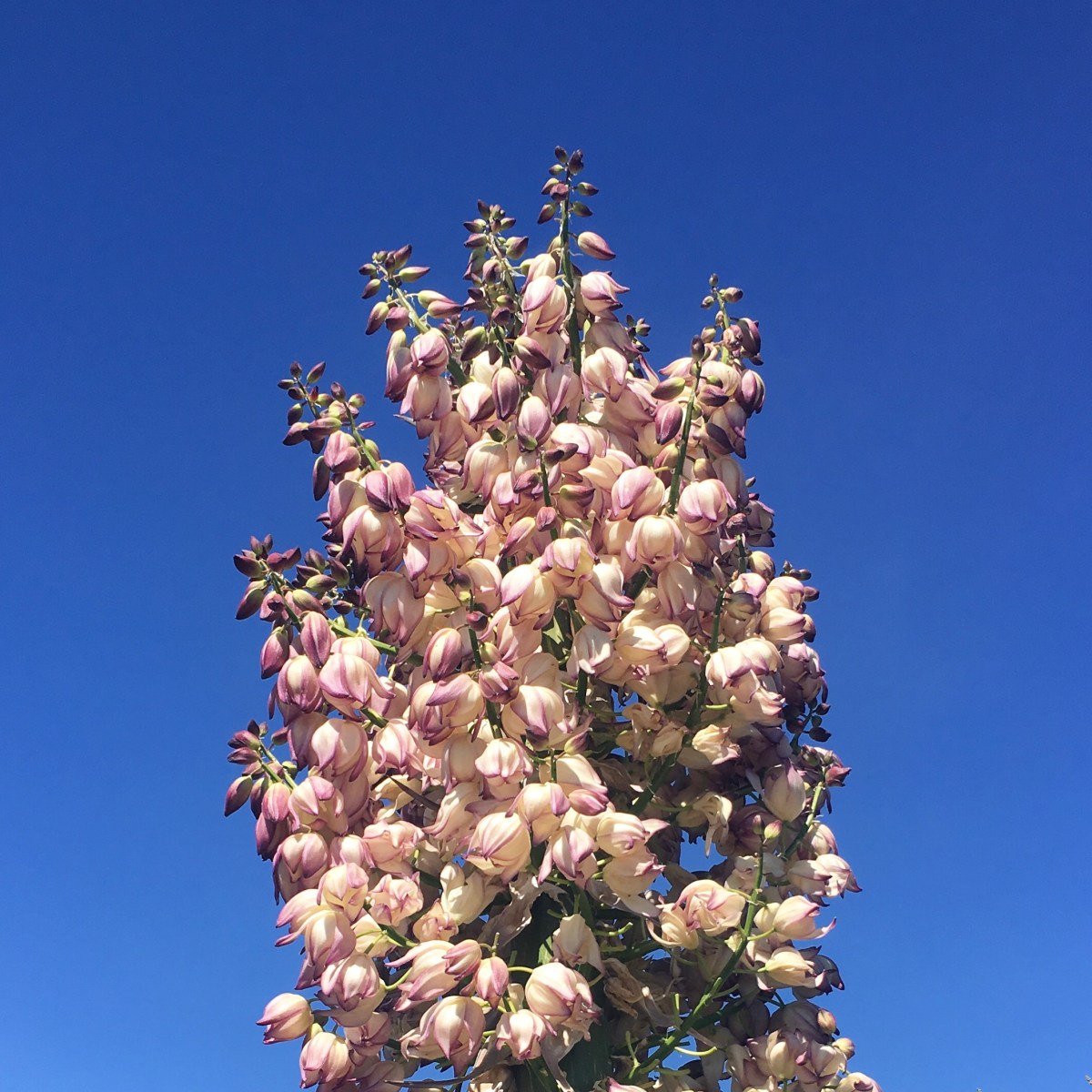
I prepared meticulously for my hike. I researched gear, connected with other hikers, bought the “PCT Bible,” and trained as much as I could. As a fat former indoor kid with no backpacking experience, I knew I was at a slight disadvantage, but I also knew plenty of humans had hiked the PCT with similar lack of experience and had been successful in their hikes. I am a careful, thorough, detail-oriented Capricorn, and I did everything in my power to make myself ready to thru-hike the PCT, an adventure that would arguably be the toughest physical and mental challenge I had taken on to date.
One thing I did not do to prepare was spend too much time chatting with other hikers online. I’d heard from more than one woman that the Facebook groups for the PCT were hotbeds for misogyny, mansplaining, and casual cruelty. I joined the PCT Class of 2017 group but quickly saw exactly what everyone had warned me about – for every single helpful comment thread, there were multiple depressing threads. I decided early on that I wouldn’t sink any of my energy into that group, and I didn’t even explore the Reddit forums ’cause I imagined it would be more of the same, or perhaps worse. There was a “Women of the PCT” Facebook group that was a friendlier place than the main group, and I spent some time there, asking occasional questions and offering what little knowledge I had as a beginner thru-hiker. But I was disappointed in that group, too; a woman of color started a group specifically for POC hikers and posted about it in the women’s forum to advertise to potential members, and more than one white woman commented disrespectfully, wondering why those hikers wanted to “further separate themselves.” These comments showed up in a women’s hiking group, one that was separate from the main hiking group for obvious reasons. Casual misogyny is not the only problem on the trail.
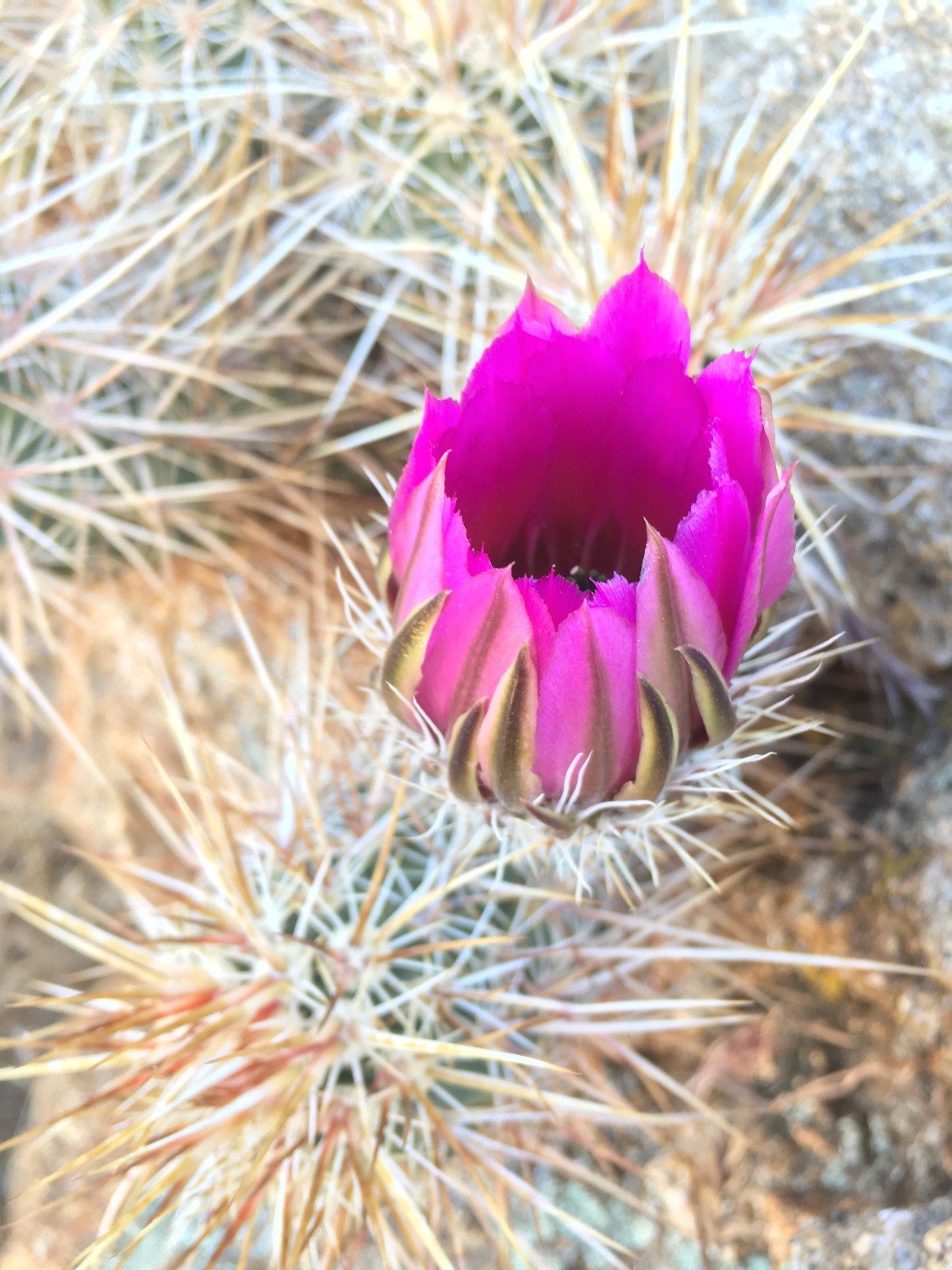
And yet, in spite of these negative online experiences, I felt hopeful for the interactions I’d experience on trail. Everyone spoke so highly about the people you meet while hiking! I’ve had such positive experiences with close-knit queer communities! I was excited to meet people outside of my queer bubble of Portland, OR, and ready to leave the negativity of online anonymity with my laptop in the city while I bounded into the backcountry for six months.
When my start date rolled around on April 20, I felt ready.
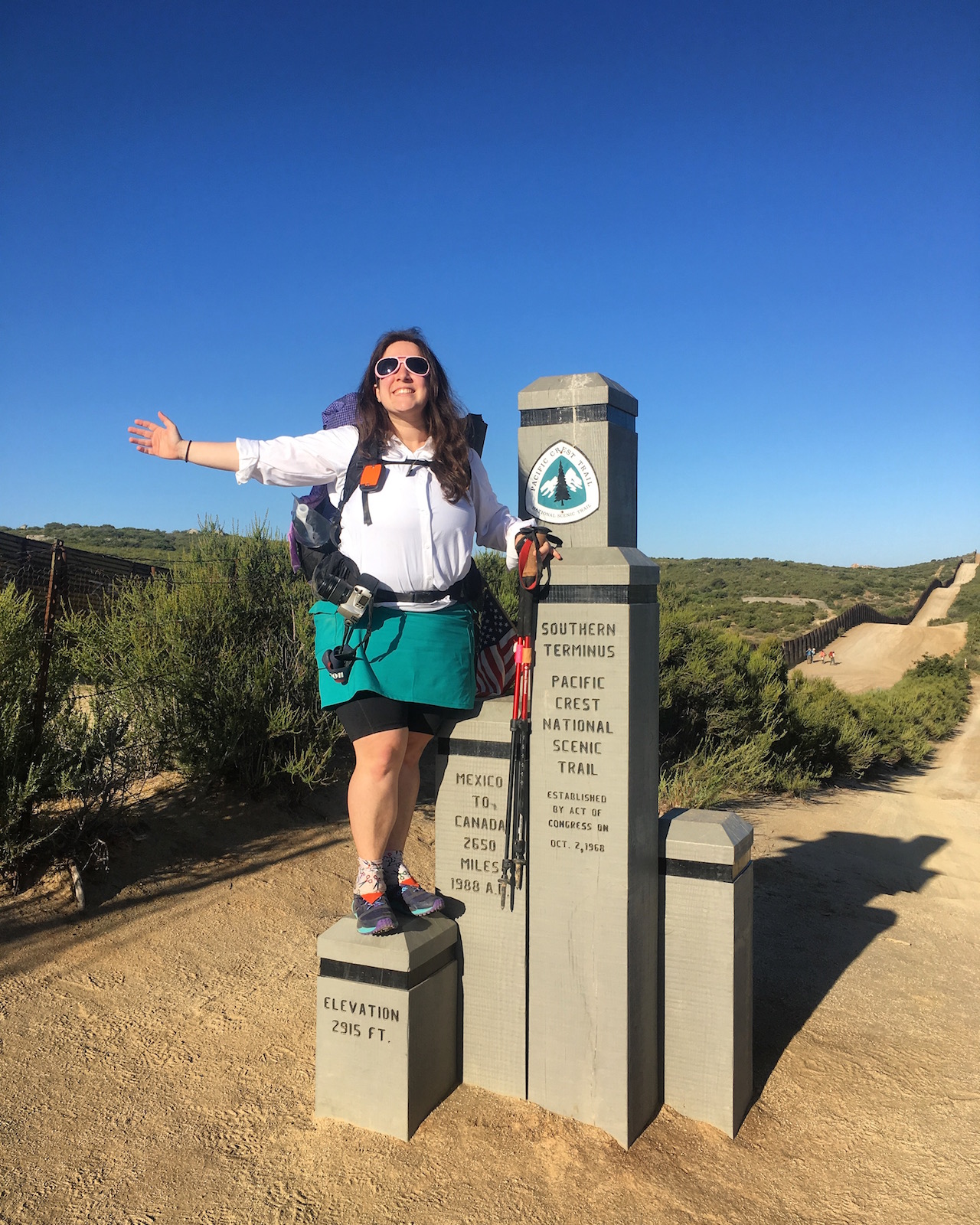
The first few days were euphoric, though physically painful. I started my hike with a group of other first time long distance hikers I felt comfortable with, I acquired a trail name I loved on the very first day (Scissors – ‘cause I’m gay), and I walked 42 miles in four days. My feet were a mess – even after all my hours of careful research and training hikes, I’d picked the wrong shoes and paid the price in terrible infected blisters – and my body was sore, but my endorphins were throwing a non-stop dance party in my brain. I took a rest day in Mt. Laguna, the tiny trail town at the 42 mile mark, to fix my feet and buy new shoes. I was ready to do this thing 63 more times! I was on track to Canada!
But the rest day I took in Mt. Laguna separated me from the folks I’d been getting comfortable with, and once I wasn’t in my cozy group I was blind-sided by the trail culture. I’d heard tales of generosity and openness, of respect for nature and LNT (Leave No Trace) principles, of a sense of camaraderie I stupidly assumed would feel similar to the way I feel in queer community. That is part of what I want to emphasize: I did not make up the idea of a welcoming and safe trail community out of thin air. Most hikers speak openly and extensively about how wonderful the “trail community” is, how they found their family while long distance hiking, how hikers are the best people, the ones in this world who truly “get it.” But I experienced something different.
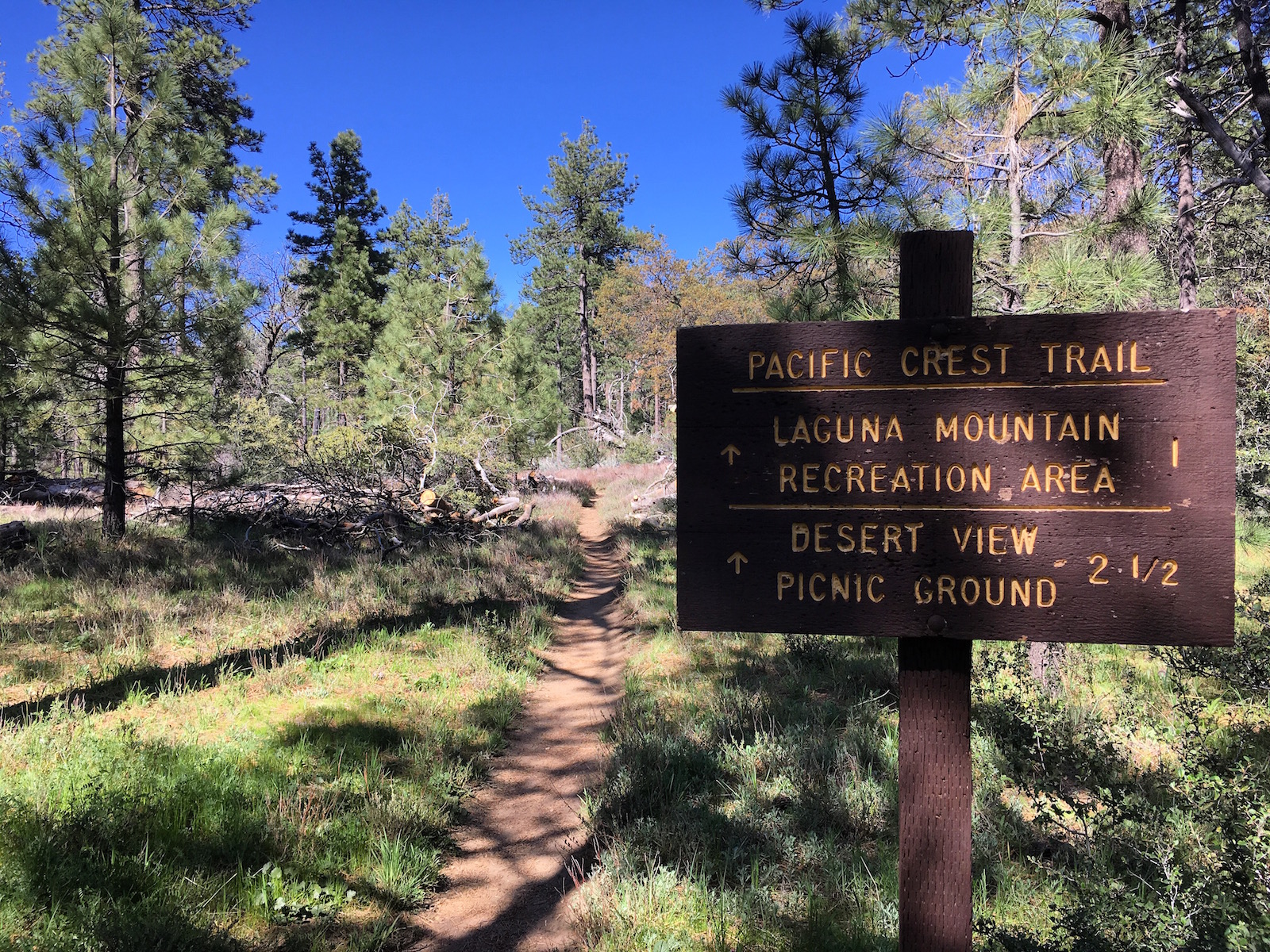
This is how it goes: I’m huffing and puffing my way up a steep incline. We’re gaining almost 3,000 feet of elevation in just 4 miles, the next water source is (probably, hopefully) one mile away, and my pack weighs 30 pounds, heavy with food I’ve packed out of town. I’ve hiked a couple of miles so far and plan to hike ten more before I set up camp to go to sleep. Other hikers keep passing me; some have smaller packs, some have larger packs. I stop to take a sip from my water bottle and a tall man approaches me, bounding up the trail effortlessly. He pauses to take a break too. “What day did you start hiking?” he asks me. Everyone always asks this question. What it really means: how fast or how slow are you traveling? Did I start before you and now we’re in the same place? Am I better than you are? Maybe he’ll ask some other questions, seemingly innocuous but designed to make one feel less than. “How many miles are you doing today?” “What time did you wake up?” “Are you walking all the way to Canada or are you just a section hiker?” These questions are baked into long distance hiking culture. No one questions why they’re asked or what they mean. Folks just wanna know, so they can put themselves on a roster and decide where they belong when it comes to being a “successful” hiker.
Sometimes it goes like this: I stop at a water source and I ask a man I’ve been leapfrogging with all day if he can scoot over so I can also have a place to sit in the shade. There isn’t a lot of shade, but enough that I can sit too. He rolls his eyes and I, stupidly, make a joke about feminism and equality on the trail. He immediately snaps that the pay gap isn’t real (what?) and then goes on a rant about feminists ruining everything. We somehow veer into the murky waters of capitalism vs. socialism and then he proudly tells me he’s glad he’s no longer at his desk job because a guy like him doesn’t belong behind a desk. “I should be out here, raping and pillaging the land!” I open and close my mouth but nothing comes out. By now several other folks have shown up – men and women – and they all hear his fucked up announcement, but no one challenges him.
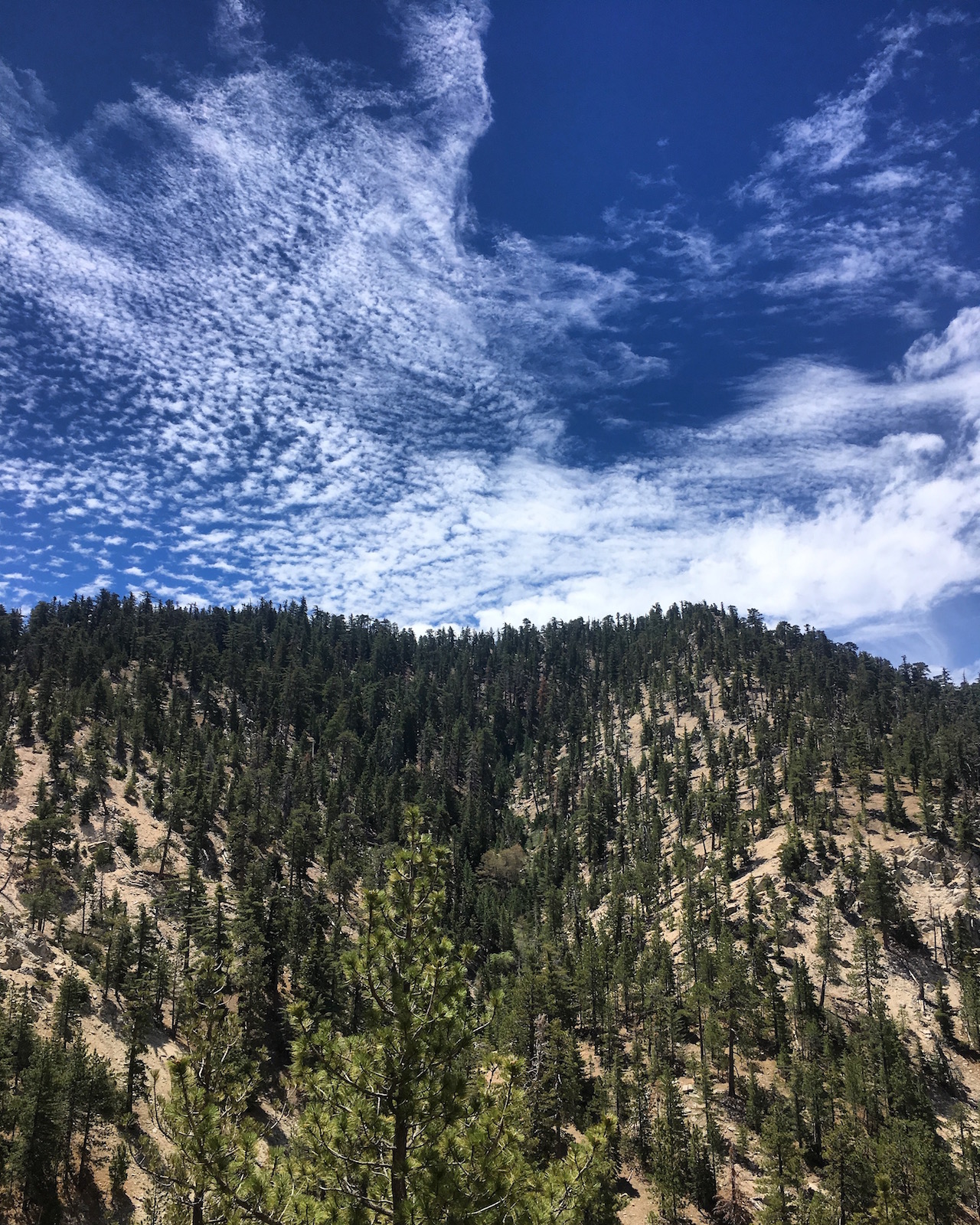
It can be like this, too: A sweet athletic blonde woman takes a liking to me and slows down her pace so we can hike together for a few hours. She admits she knows the trail is a boys club, but she’s used to it because she teaches snowboarding in the winter and that’s a boys club, too. She tells me she kinda likes being in the club, so she makes herself one of the boys. “It’s dumb how competitive everyone is about mileage,” she says, and I’m about to agree but then she continues, “I mean really, we should be most impressed with people like you! It’s amazing that you’re out here doing this!” I think she thinks she is being nice so I don’t say, “Wow, thanks for thinking it is so amazing that a fat slow lesbian could be hiking this trail with you and all these dumb bros!” It’s hot and I’m tired and fuck, I liked this woman, so I just say, “Thank you.”
It happens in so many ways. Almost every man I encounter wants to mansplain some aspect of my gear to me. Men make disgusting objectifying comments about women on trail, calling girls hot or ugly or fuckable or whatever makes them feel powerful in that moment, I guess. One man who I think is my friend hurts my feelings and when I try to communicate with him in the adult way I’ve been taught, by telling him he has hurt me and asking him to please not repeat his behavior, he mocks me and encourages others to join him until I cry. He avoids me after that. I meet so many men who tell me, blissfully, that for the first time in their lives they finally feel completely understood. I am dumbfounded. They finally feel understood? Finally? But…where on this Earth do they not feel understood? What the fuck?
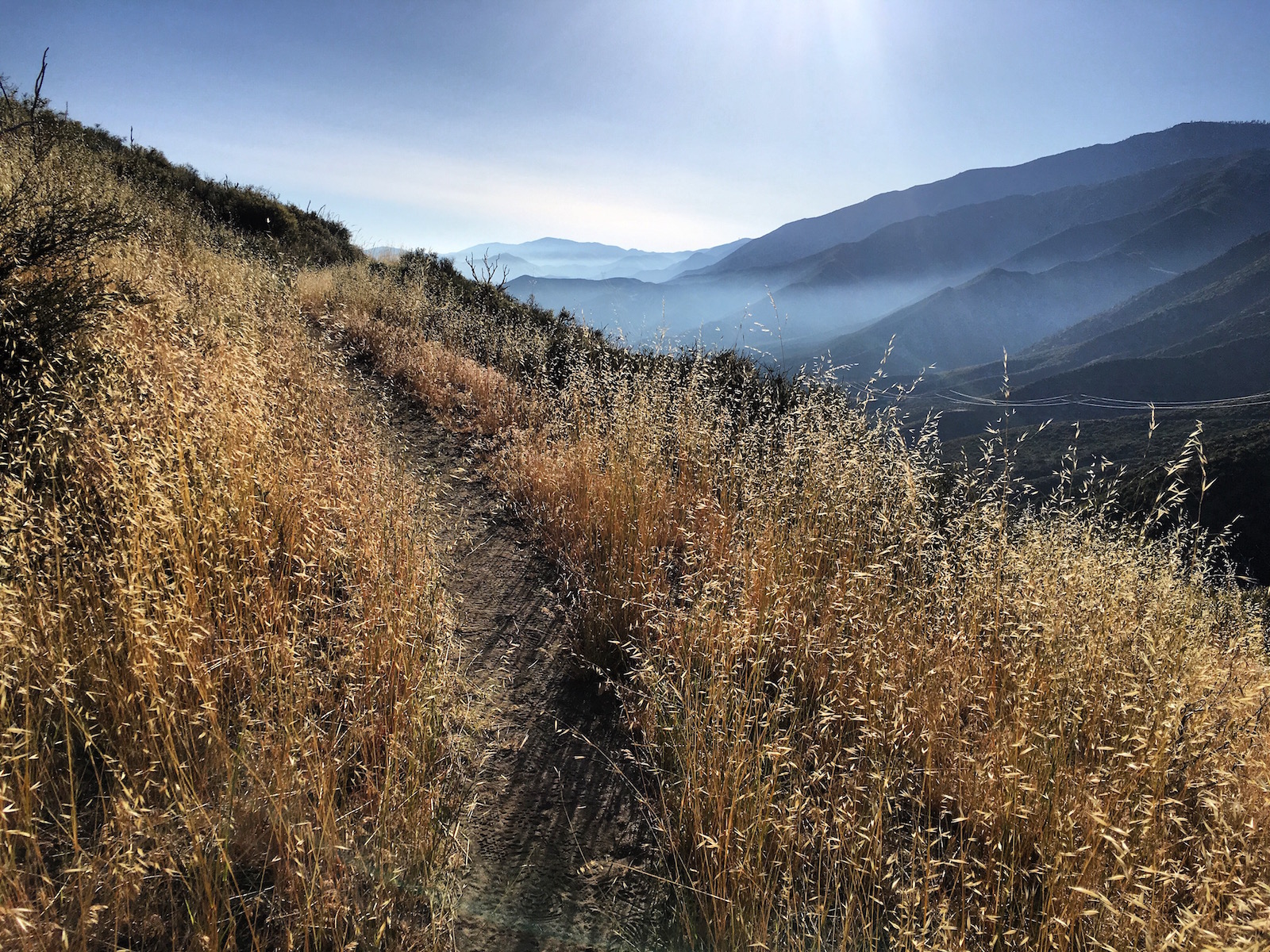
The incidents are often so “minor.” I know when I list them here the folks who don’t want to admit this is a problem will find ways to discredit my experiences, call me crazy and oversensitive, insist that I’m the problem, I’m an anomaly, this has nothing to do with their precious community and everything to do with me. I know what it’s like, to feel protective of a community that means everything to you, to want to claim that the space where you finally feel understood is perfect. But listen, we live in a racist homophobic transphobic fatphobic classist fucked up patriarchal society. To think we can run away to the woods – a place that is touted as “America’s Playground” but in actuality is only accessible to those with the right color skin, the right amount of money, the right physical shape – and somehow escape the oppressions that are wound tightly into the fabric of American life and have a utopian community where everyone feels safe is ignorant at best, toxic at worst. Most of the language we use to describe our “playground,” which truthfully is stolen land from Native American tribes, is racist: talking about “bagging peaks” or “conquering mountains” is as much part of the problem as anything else. It’s not about just one bad man or a couple of jerks, it’s about the entire culture. We all have work to do.
Hikers are familiar with this concept; the only way to walk to Canada is to put one foot in front of the other. The only way to do this work is to do it.
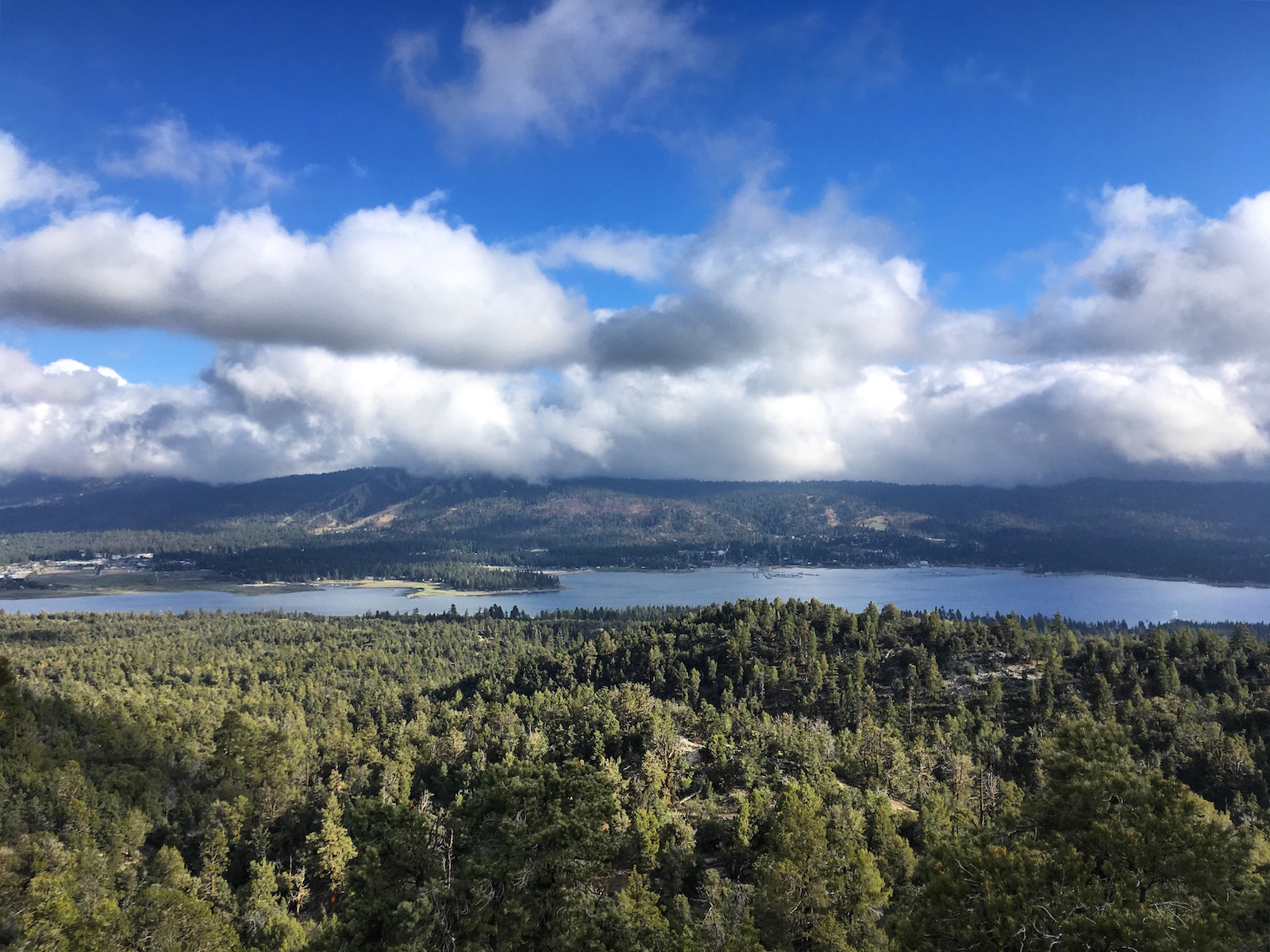
When I got off the trail last year I was profoundly disappointed. I had worked so hard and it was embarrassing to have to call it quits. It has been really hard to let go of the shame and sense of failure I experienced when I came home. I’d written about hiking the PCT on this website, people were following my blog posts. Many assumed I’d quit because of a knee injury I’d written about, and while I said that was part of it, I wasn’t giving away any of the other parts yet. I wasn’t even sure how to articulate them at first.
“I just feel like I failed,” I said to my girlfriend one night, trying to explain why I was so sad.
“I wish you’d stop saying that,” she said. “You didn’t fail the PCT; the trail failed you.”
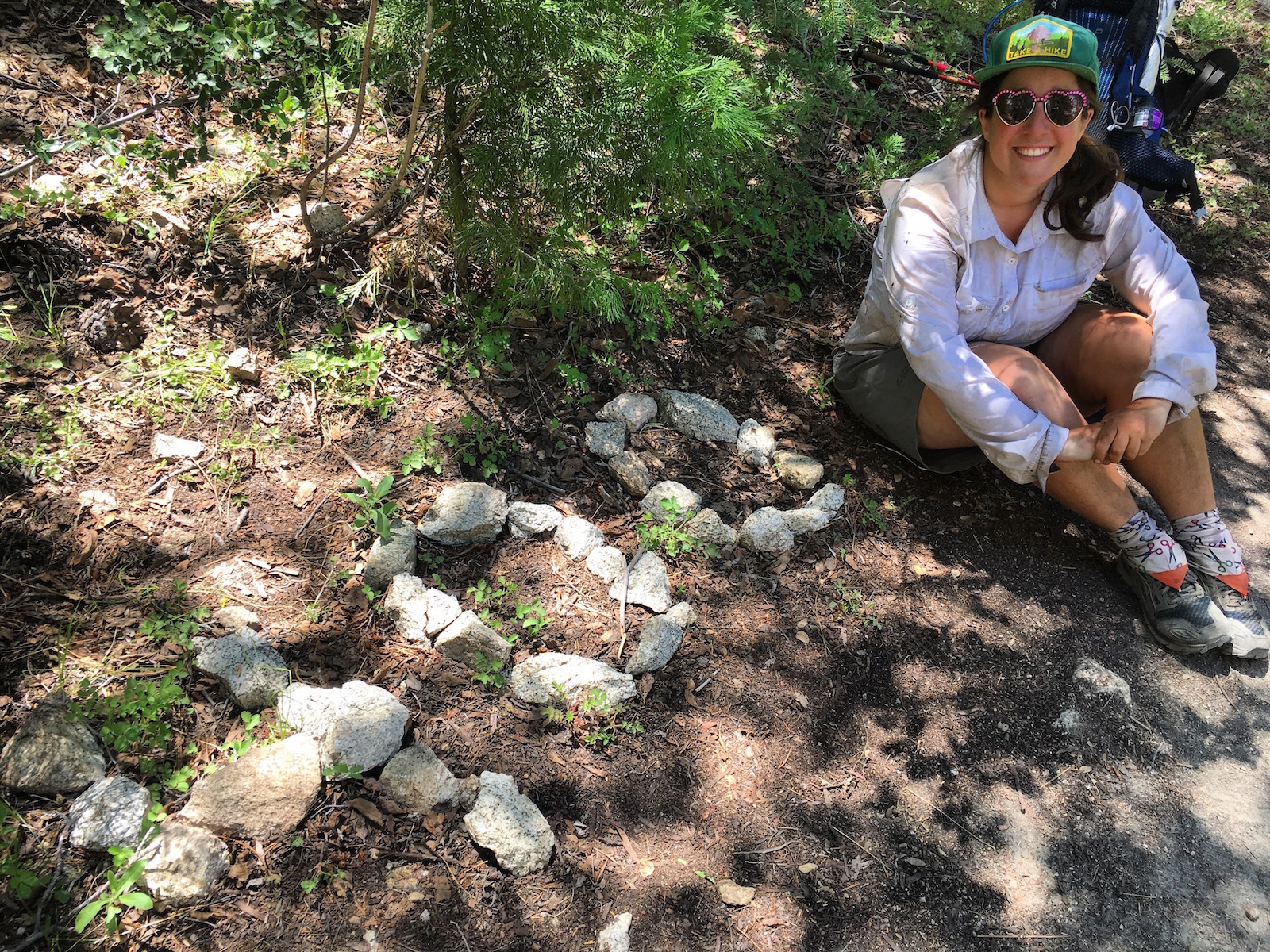
Now, eight months later, I’ve finally accepted that at least as a partial truth. I’m trying to move past the part of the grieving process where I feel sad and bad and mad that I did not complete the trail the way I intended to and am instead focusing on what I can do to make the long distance hiking community a safer place for women, queers, people of color, and fat folks. Initially I was terrified to talk about the stuff that drove me off the trail – no one else seemed to mention how terrible it feels to be physically exhausted every day and still have to muster the emotional strength to either take on or avoid aggressive, demeaning, oppressive behaviors – and it felt intimidating and vulnerable to name the problems so bluntly.
But, like I said, any time I brought this up in conversation with fellow hikers, their reactions validated my experiences and strengthened my resolve that we must talk about this. When I published an essay in SHAPE magazine about being the fat girl on the trail, I didn’t outright name toxic masculinity as my biggest problem on trail, but folks who knew what to look for saw marks of it all over my narrative. I received many private messages from hikers thanking me for speaking out and indicating they had read between the lines and they, too, had negative experiences with the bro culture of the trail. So I went on my friend Lacy’s podcast, Flex Your Heart Radio, and finally got brave enough to speak bluntly about why I didn’t finish my hike. I used some of the specific examples I’ve outlined here to counter the romanticized myth that I think many people buy into when they think about hiking a long trail. Then I presented at Queer Adventure Storytelling, a local event in Portland, OR, and instead of telling a traditional adventure tale, I named my speech “Talking About Toxic Masculinity And Bro Culture On The Pacific Crest Trail, With Pretty Pictures To Focus On If My Words Are Too Much Of A Bummer!”

The West Coast is beautiful, y’all, and hiking in the backcountry is a very special way to experience it. But hiking the Pacific Crest Trail in 2017 was not enjoyable for me because of the shitty culture on trail. I know, I know: I could just get over it. There are other less populated trails to hike, or I could make sure to recruit queer friends to hike with me next time so I don’t feel so alone (physically and in my ideologies), or I could just give up on thru-hiking. But I’m not the only “me” out there. While I experienced negative effects of bro culture, sexism, and fatphobia directly, I know that objectively, going on a long hike is easier for me as a white person, as a cis person, as a person from a financially secure family than it is for folks who do not have those privileges. Thru-hiking is empowering in so many other ways, and this bullshit oppressive behavior that is passively accepted makes thru-hiking something that is uncomfortable for so many humans who try it. I don’t want any other folks to have to give up on a big dream – everyone on the trail should be able to feel like they’ve never been so understood in their whole lives.
I knew it was over for me, really over, a couple of miles before the spot that I actually got off trail. It was Day 40 and I woke up early to beat the morning heat. I was approaching a popular “trail angel” house – a trail angel is someone who helps hikers just for the sake of it, just to be kind – and I should have been excited. I’d been looking forward to this piece of my journey; I wanted to meet and thank the trail angels for their generosity. Their existence on trail was part of the mythology around “the kind of people you’ll meet in the thru-hiking community” and if I’m being honest, I still desperately wanted to believe that narrative, even as forty days on trail had disproved it for me.
But I felt clammy and anxious thinking about the other hikers I might encounter when I arrived. At least a few of the men who’d made unkind or thoughtless comments to me would probably be there. A lot of hikers would be there, and I was starting to feel skeptical about meeting new people in large groups, rather than excited and hopeful, as I’d felt at the beginning of my journey.
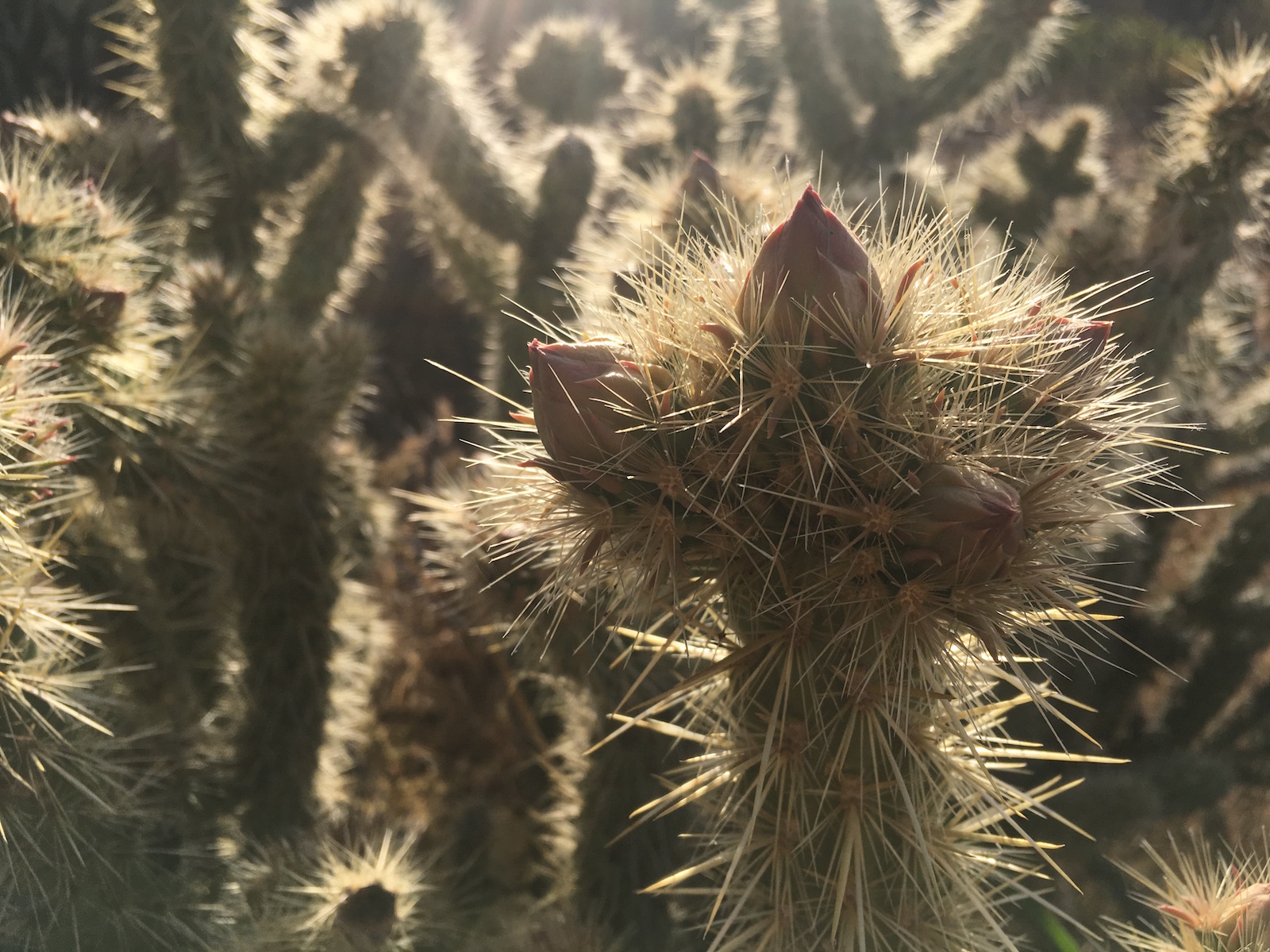
That morning the air was not yet stifling hot and the trail was gentle, mostly flat. I was alone for most of the ten miles I had to hike to reach the trail angel’s house, surrounded by impressive rock faces and interesting plants. I stopped as often as I pleased; I had plenty of water and knew I’d be able to fill up my bottles soon, so I could drink as much as I wanted, a rare gift in the desert. I even had a fresh apple to snack on. I should have felt pure joy. Instead, two miles before I reached my destination for the day, I reached for my phone to take a photo of a particularly beautiful plant and noticed I had service. Before I could think about it too hard, I was opening the Google Chrome app, and then I was typing in letters, L-A-X and P-D-X, and then I had looked up plane tickets. Home. Back to my girlfriend, to my community, to my life where I felt more understood than I ever had on trail. I didn’t want it to be true, but I knew for sure in that moment: my Pacific Crest Trail adventure was over.
Once I made the decision, which I’d been agonizing over for about 20 days if I’m being truthful, everything happened very quickly. I called a close friend who lives in LA and explained my situation; she immediately agreed to come get me and assured me I could stay at her place as long as I needed. I bought my plane ticket for two days later, called my girlfriend and my mom to let them know what was happening, and within 48 hours I was on a plane back to Portland. It was bizarre to see my dirty smelly pack, which had accompanied me for 454 miles on the trail, in the overhead compartment next to clean and shiny carry-on cases. It seemed to protest: this is not where I belong.
I still miss the trail all the time, but I do not miss the long distance hiking community and the behavior I contended with during my hike. I have some friends who had to get off the trail this year – for a variety of reasons including injuries and running out of money – who plan to return next year, to try again. I envy them, but I don’t think I’ll be returning to the Pacific Crest Trail until there’s a deliberate shift in community values and attitudes. This makes me sad and frustrated, but I’ve been trying to move forward and be grateful for the time on trail I did have, and hope that as more people speak up, things will change.
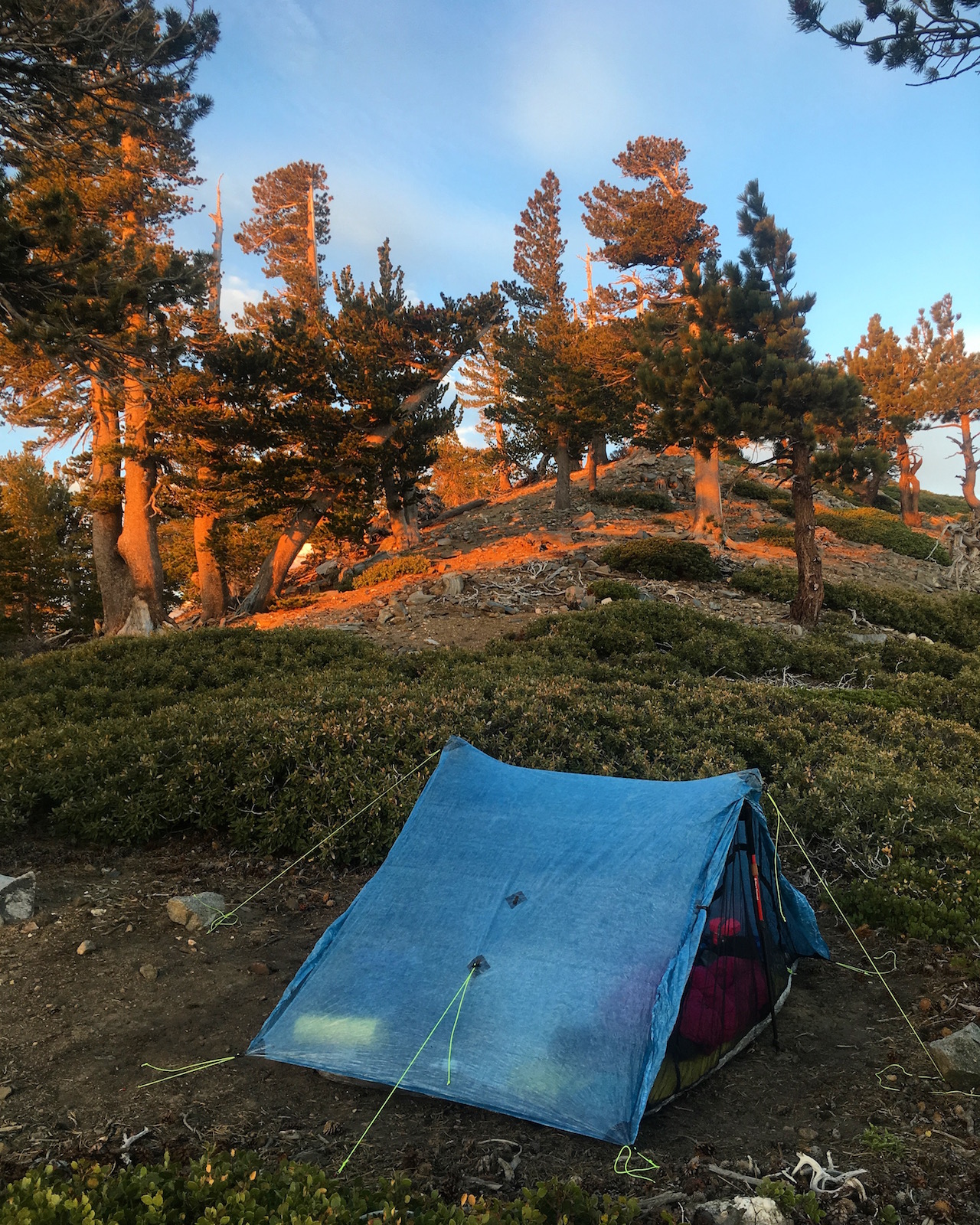
When I think about the PCT now, I like to remember my favorite day, instead of all the bullshit that accompanied my hike.
It was hot, because it’s always hot in May in Southern California, but there was a significant amount of tree cover and I wasn’t sweating too badly, all things considered. I’d climbed and climbed and climbed until I’d finally done it — I reached the top of Mt. Baden-Powell! At 9,407 feet, it was the highest mountain I’d ever summited. It was late in the day so I was all alone on trail; I’d been aiming for a campsite many miles ahead of the mountaintop but suddenly I realized I was tired, the sunset was breathtaking, and I’d been offered the gift of solitude. I decided to say thank you to the universe and make the most of it – the PCT is such a busy trail that being truly alone is rare, so I was extra grateful. I pitched my tent easily and made a hot dinner. I’d packed a fresh avocado out of town and it was such a luxury, cutting chunks of it into my dehydrated chili with my tiny knife. I sat on a log stump and ate my decadent meal as the sky changed color a million times over and then was dark and cold so I clambered into my tent and curled into my pink sleeping bag.
I was warm, and I was full, and I was proud of myself, and I was alone — and happy. I was happy.
